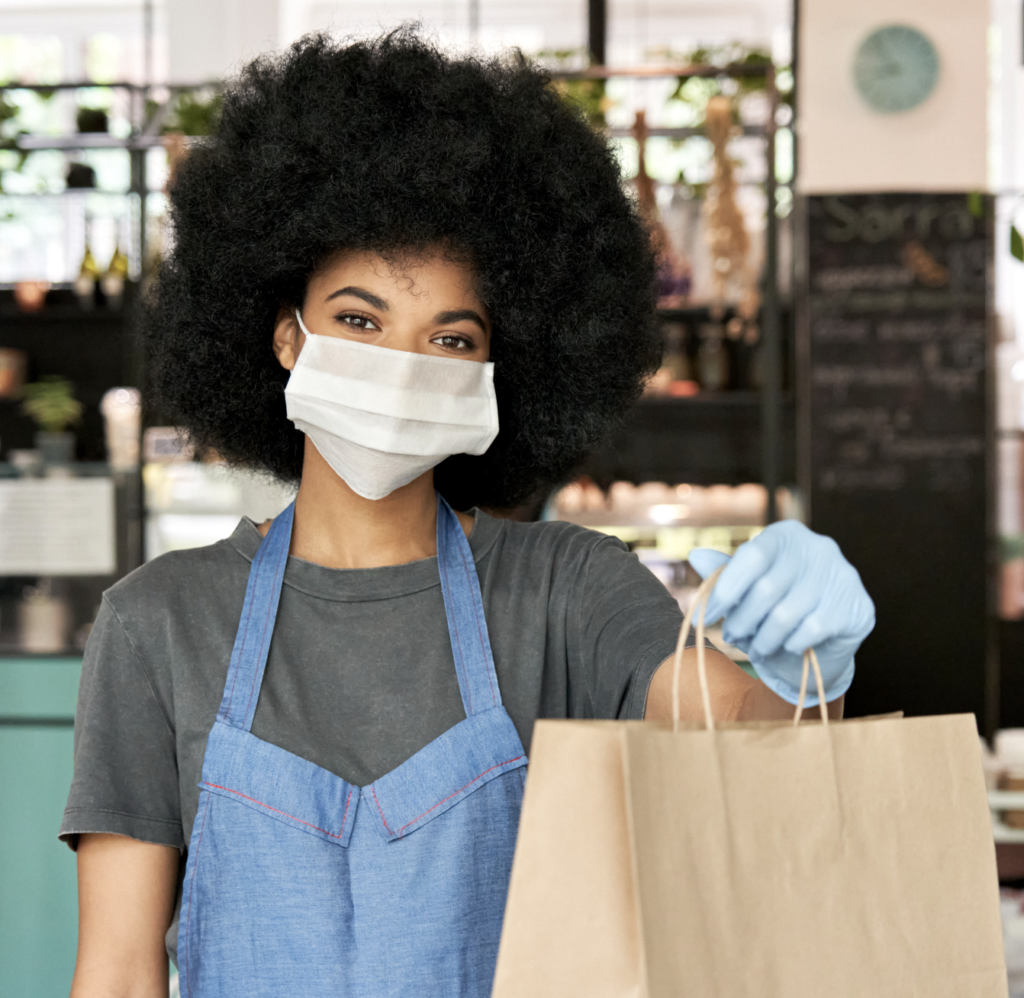By Jamie Kirk
Small businesses are the lifeblood of the U.S. economy; they create two-thirds of the net new jobs and drive U.S. innovation and competitiveness. This stat includes the restaurant industry. With so much lately being out of our control, helping sustain small businesses, specifically restaurants, by ordering via a food delivery service, curbside pick-up, or perhaps dining in is the very least we can do.

Here in Atlanta, there is a wealth of Black-owned businesses that range from boutiques to spas, bookstores, music stores, art galleries, and so much more. Often celebrities and professional athletes seek out Atlanta with intention because of the money spent supporting Black businesses.
Many of the business owners care about and are invested in our community’s well-being and its future. When deciding upon where to open their restaurant, given a choice, most of them would open the business less than 5 miles from their home. Being close to home allows them the flexibility to be open longer hours and additionally employ people in the neighborhood looking to find work.
When we dine out and visit a black-owned restaurant, we do so much more than fill our bellies with likely good cuisine. And no, not all black-owned restaurants serve Soul Food or BBQ. We feel the pleasure and joy knowing that we intentionally sought out a small black-owned business to satisfy our hunger gives us a sense of pride. Just to know that we are investing in the business and the community all at once simply feels good. The familiarity of seeing the business owner serving customers or doing bar-back work lets you know that they are all in and not just signing the paychecks.
There are so many advantages and wins to visiting a black-owned restaurant, like the monies used to provide community centers or help pay for necessary road repair and even assist in funding public service workers, like firefighters. Through their paying of taxes, Making an impact by supporting these local spots directly and positively stimulates our economy. As mentioned above, more than half of the U.S. jobs for over 25 years were created by small businesses. Small businesses most often provide a better customer experience. Black business owners understand they continually have to earn our business. And this fight pushes them to provide a more personable, hands-on, and unforgettable customer service experience. Black-owned restaurants have as much or more access to vendors (who, by the way, determines pricing, not stores) that many chain restaurants cannot. Generally speaking, if a small business/restaurant doesn’t carry the products you want or need, you can ask them – they are also usually much more receptive and willing to get them for you; so that you will become a repeat customer and equally as important; leave a positive review.
We all have seen restaurants in Atlanta close their doors. Long-standing, filled every Saturday night places, have been boarded up and filed for bankruptcy. However, a black-owned business in a mostly black community holds a cash buffer of only about two weeks or less, making it difficult for them to keep their businesses going during an economic downturn (i.e., COVID 19). Given the above factoid, even to get to the place of opening a black-owned business is monumental because of the more significant challenges faced in establishing and growing the business, securing bank loans, or finding an investor.
According to a recent Brookings Institute report, only 4.3% of the United States’ 22.2 million businesses are black. However, small businesses in predominantly black communities are rarely profitable, with less than 1% having a median profit margin above 20%, compared to nearly 40% of businesses in majority-white communities.
Every time we eat at a restaurant, shop at a mom-and-pop, or buy food from a smaller grocery store in our neighborhood, we are supporting business owners (in most cases) that live in our neighborhood, share similar beliefs that we do, want to be successful like we do and want the community to thrive as we do. Help them by helping them stay afloat, especially during this economic down-turn. Let’s let our actions speak for us.
Jamie Kirk works in Marketing for an automotive company. When he is not traveling for work, he enjoys a good spin class, running, hiking, and all Big Ten College sports.